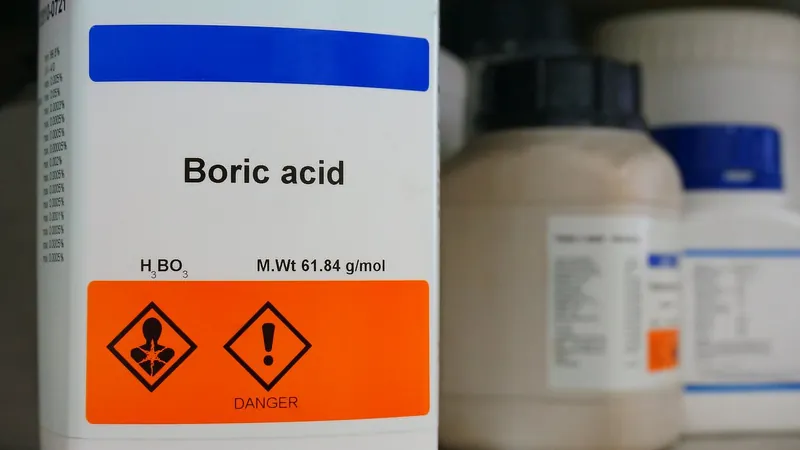
Fuming Reactions as Influencer Suggests Women Use Pesticide Chemical for Vaginal Freshness
2024-10-10
Author: Wei
Introduction
A recent social media controversy has erupted as influencers promote the use of boric acid, a chemical typically used as a pesticide, as a means for women to maintain vaginal freshness. The alarming advice comes from popular U.S. influencer Allison Hoeller, who has garnered millions of views with her videos advocating the supposed benefits of inserting boric acid tablets into the vagina.
The Controversial Advice
In her videos, the 28-year-old assures her female followers that using a boric acid tablet will minimize any unpleasant odors, claiming it will leave them "smelling like water." She suggests using the tablet 24 to 48 hours before a date for optimal results. Hoeller even mentioned that she has recommended this method to friends and family, emphasizing her belief that it "works."
Health Professionals Respond
However, health professionals are expressing their outrage over these claims, citing a severe lack of scientific evidence to support the use of boric acid in this manner. Medical experts warn that inappropriate use of this chemical can lead to irritation, increase the risk of sexually transmitted infections (STIs), and may pose toxicity risks if ingested.
Expert Opinions
General practitioner Dr. Philippa Kaye spoke out about the dangers, stating that boric acid is an astringent which can dry out vaginal tissue, potentially leading to serious complications. She stressed, “Your vagina isn’t meant to smell like roses or anything else. It has its own natural scent and ecosystem that should be preserved.”
Dr. Kaye also noted the importance of maintaining a healthy vaginal microbiome, explaining that boric acid indiscriminately kills both harmful and beneficial bacteria. She encourages women who notice changes in their vaginal odor to seek medical advice rather than attempting to self-medicate with questionable products.
Regulated Use
Also weighing in on the matter was Professor Penny Ward from Kings College London, who remarked that while boric acid has specific medical uses for treating resistant vaginal infections, it should only be used under medical supervision and certainly not as a product for routine freshness.
Previous Controversies
This isn’t the first time influencers have faced backlash for misleading health advice. Last year, Kourtney Kardashian was heavily criticized for promoting vaginal wellness gummies, which medical professionals deemed ineffective at best. Prior instances of women being advised to use garlic for yeast infections or Gwyneth Paltrow's controversial jade eggs for "feminine energy" have also drawn skepticism and condemnation from healthcare experts.
Conclusion
The conversation around this issue has sparked a vital dialogue regarding the importance of informed health practices for women. Influencers may wield significant influence over public opinion, but it’s essential for followers to validate health claims with credible medical advice rather than relying solely on social media endorsements. Stay informed and remember: Your health is too important to put in the hands of viral trends!



 Brasil (PT)
Brasil (PT)
 Canada (EN)
Canada (EN)
 Chile (ES)
Chile (ES)
 España (ES)
España (ES)
 France (FR)
France (FR)
 Hong Kong (EN)
Hong Kong (EN)
 Italia (IT)
Italia (IT)
 日本 (JA)
日本 (JA)
 Magyarország (HU)
Magyarország (HU)
 Norge (NO)
Norge (NO)
 Polska (PL)
Polska (PL)
 Schweiz (DE)
Schweiz (DE)
 Singapore (EN)
Singapore (EN)
 Sverige (SV)
Sverige (SV)
 Suomi (FI)
Suomi (FI)
 Türkiye (TR)
Türkiye (TR)